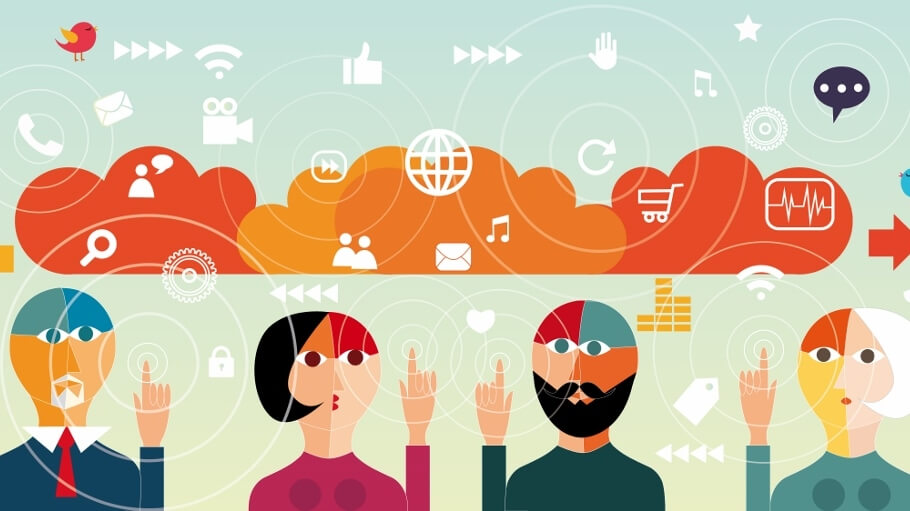- Artificial Intelligences work in our team. - 31 January, 2023
- The Great Digital Transformation - 21 April, 2020
- Opportunism or Empathy - 17 April, 2020
The Great Digital Transformation
We were already digital; all we needed to do was transform.
Many of us have long held that in Digital Transformation, the key lies in Transformation, not the Digital. Digital is a fact, and Transformation is an option. Is it?
Isn’t digitization the cause and transformation of the effect? Could you say that we have been able to develop a digital environment, a digital economy, digital communication, but we have not been able to adapt to our creation? I think so. It could say precisely that.
But hypotheses need an empirical demonstration to contrast their validity. It means that an experiment must be able to be developed that stresses the premise and can confirm, with the slightest margin for error and uncertainty, the hypothesis. The experimental environment, put to add complexity, must be assimilated to what we would all accept as “reality”.
We face the most fabulous Beta of all time.
And there came an experimental environment that we never predicted, that we never imagined and never desired. It’s called Covid-19 and has made reality the greatest experimental environment of all time.
This submicroscopic body has achieved two unthinkable things (not to mention health drama, the tragedy of deaths and social and economic chaos): enclosing humanity at home (understand me, I use a home as a general term to refer to global confinement) and make individuals aware of their interdependence.
Analog world “pause”. Digital environment “play”.
There is a third thing, a product of the two mentioned above, that COVID-19 has provoked: to show that we were already digital, but we had not noticed.
The streets are deserted, and the Internet is buzzing with activity. Offices are empty and Collaborative Platforms fill the screens of the faces of colleagues, collaborators, customers and teams.
The Cloud is no longer an ethereal place where IT engineers had led us to believe that data, tools and, ultimately, all or almost everything our business needs to function, and it becomes a fluid, reliable and robust workspace. The Cloud exists. And it works.
From Artificial Intelligence to Additional Intelligence.
Artificial Intelligence sits with us to work and, from the other side of the screen, displays its algorithms so that we can see that everything we imagined could be done, has been being done for some time now. And it works, too.
We don’t see it that artificial anymore, we see it closer. I daresay we’re starting to see it as what it is: Additional Intelligence.
The Internet of Things (IoT) also exists, and is no longer strange and alien, part of the nearby environment, of the functioning of the everyday. It’s a little friendlier, more personal. It’s not so much the Internet of Things, dry, and it’s closer to IoPT, the Internet of Personal Things.
But is this all safe? Now that we’ve become aware of digitisation, we’re overwhelmed by the sense of vulnerability.
Cybersecurity was already important. It always was. What happens is that the magnitude of its importance we hadn’t noticed either. We finished the day in the office, set off the alarm, closed the door and went home quietly. Who triggers the alarm and closes the door in the cloud?
Transformation always comes from outside.
It is not necessary to delve deeper into the description of an environment that envelops us all. A situation in which, as in every extraordinary event, there is a need for Empathy and surplus of Opportunism.
But I think it is necessary to reflect (collective, the more collectively), the better whether, without this global pandemic, Digital Transformation had also become global.
I am passionate about language, a practitioner of quality syntax (I strive to be), and a firm convinced that language determines thought (very Orwellian, I know). And it never ceases to amaze me that, when we talk about transformation, at least in the Spanish language, the syntax that we usually use is of the type: “The Company undergoes a Digital Transformation”.
That is, we mean something or someone, in this example the Company (subject), which suffers (transitive verb) a Digital Transformation (direct complement). I emphasize that the verb most associated with “transformation” is “to suffer”. You don’t suffer voluntarily. Don’t choose to suffer. It is suffered by external imposition or imponderables that cannot be controlled. You suffer to survive. He suffers to stop suffering.
The time to stop doing it is now.
We were already digital; all we needed to do was transform.
It is, if not else, worthy of reflection, and not exactly semantic.
We’ve been digital for a long time and it hasn’t become apparent to us until now. We are able to squeeze technological resources normally and efficiently and we didn’t think we were trained until now. Our learning and adaptation skills are very high and we haven’t tested them until now. We have good tools to build a digitally human future and have not used them properly until now.
It has had to be a tiny enemy, with an epic name, who made us understand that digital was never a threat; it has always been the opportunity. We’ve suffered what we could have enjoyed.
Digital Transformation today has a very different perspective from the one it had just three weeks ago. But will this perspective today be sustainable in time when normality returns? Because normality will return. It’ll be very different, but he’ll be back. Will we take advantage of the impulse or return to inertia?
Will we be able to see, understand and seize the opportunity that is wrapped in this crisis?







